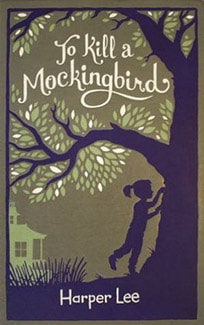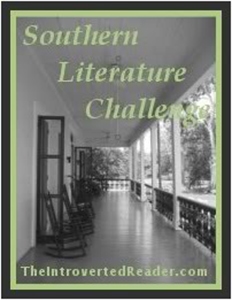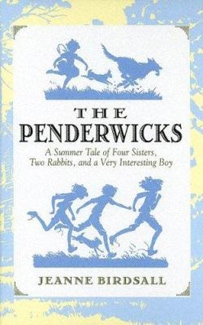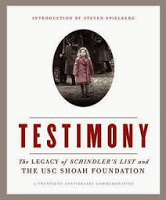I have affiliate relationships with Bookshop.org and Malaprop's Bookstore in beautiful Asheville, NC. I will earn a small commission at no additional cost to you if you purchase merchandise through links on my site. Read more on my affiliate page.
In this classic tale of growing up in the Jim Crow South, Scout Finch captures readers’ hearts as she plays her games and begins to lose her innocence as she watches the adults in her town. A trial that has been defined by race is making everyone show his or her true colors and it’s an eye-opening experience for Scout.
I’ve read this probably 4 or 5 times by now, but I’ve never actually reviewed it. I really want to say, “I love this book. Not a passing love, but a deep and abiding, down to the soul love. Read it.” And leave it at that.
But I won’t let myself do that.
I love everything about this book. The biggest thing for me are the characters, especially Atticus and Scout. I love Atticus. No, really. I do. He’s such a good man. As several other characters point out, he’s the same on the street as he is in his house. He tries to live a life that permits him to look his children in the eyes. As someone else points out, he’s the town’s conscience. They trust him to do the right thing, often in spite of them. He never lets them down. I noticed this time how much it costs him. Scout is such a little motherless tomboy, I just have to love her too. She’s pretty passionate about everything and she’s still so innocent. This time around, I actually noticed Jem. I’ve overlooked him in the past, but I can see that he’s going to follow in his father’s footsteps.
The story is such a well-done contrast. There are the carefree, almost idyllic days of Scout and Jem’s childhoods painted against a background of racism and pettiness and revenge. Harper Lee makes her point about race issues without beating her readers over the head with it. It sneaks up on me every time the same way that it sneaks up on Jem and Scout.
I’m more curious than I’ve ever been about Boo Radley after this reading. Why does he stay inside? Is he happy, or at least happy enough? What really happened to him in his past?
I’m also curious about Calpurnia. She seems happy enough, but is she really? I started conflating her with Aibileen from The Help. I think Calpurnia is probably as happy as anyone in her position can be, working for the Finches, but she still lives in a racist society.
And I think that’s about as articulate as I can be. Why is it always so hard to write reviews of books you love? If you’ve never read this, pick it up. If you have, isn’t it about time for a re-read?
Read an excerpt.
Read more reviews at The Allure of Books, Estella’s Revenge, and A Novel Menagerie.
If you like To Kill a Mockingbird, you might also like:
- The Help by Kathryn Stockett
- The Evolution of Calpurnia Tate by Jacqueline Kelly
- Leaving Gee’s Bend by Irene Latham
- Zora and Me by Victoria Bond and T. R. Simon
Buy To Kill a Mockingbird at
I have an affiliate relationship with Malaprop’s, my local independent bookstore located in beautiful downtown Asheville, NC; and Better World Books. I will receive a small commission at no cost to you if you purchase books through links on my site.







2 Comments
I have the same problem – its like you don't know where to start and have too much to say to be able to even write an articulate review of a book you love. If that makes sense. Lol.
This is a favorite of mine too – Jem is always my favorite, I am glad you spent some time with him this reading of it. And Scout too, little urchin that she is. 🙂
I remember loving this book when I read it in high school, but I really think it is time for a re-read. This summer may be the perfect time to revisit these beloved characters!